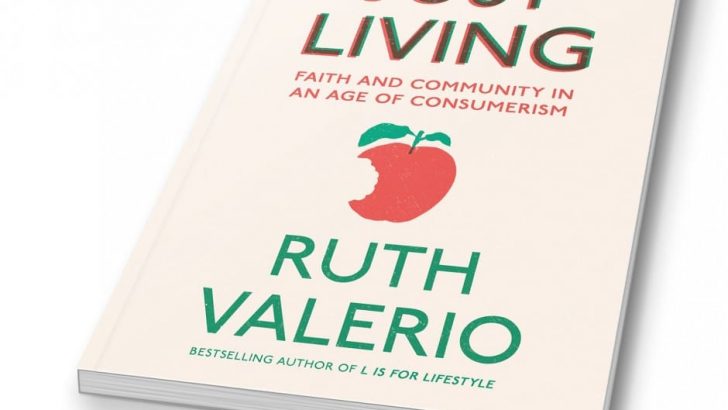Just Living: Faith and Community in an Age of Consumerism
by Ruth Valerio
(Hodder & Stoughton, £13.99)
As the turmoil of post-Brexit continues, many people must be asking themselves is this any way to run the world.
The key to what has happened is that angry people have managed to win a referendum by a margin, but did this by ignoring the problem of the periphery and the people who live there. The vote, and the rumblings of discontent across Europe, are motivated by fear.
What should be the response of the Christian citizen to this? This book, which can be highly recommended, will provide many wanting to find a solution with food for thought. It may well change their lives. And that might be no bad thing.
Ruth Valerio’s subtitle breaks it down into three areas: faith, community and consumerism. If one takes consumerism first, much of what we can buy in our shops, which seems so remarkably cheap, is the product not of local labour but as often as not of sweated labour in some place like China, Malaysia or Indonesia. There, too, people are anxious to rise to the aspiration of the European middle class whose vanity their labour feeds. The answer to this ruthless globalisation is the notion of fair trade. But there is another answer proposed by many Chrstians as well as the ecological movement: sustainable living.
The answer must be a new way of living, one in which a new kind of faith is concerned with the world, with others, with the community – but that community for the Christian does not mean one’s own little clique of saved souls, it means everyone.
What is interesting in this book is what it has to say about some medieval concepts of life expounded by Thomas Aquinas and monasticism. The monastic ideal was one of work as well as prayer.
It is very challenging to go into a local shop in suburban Dublin and see flowers flown in fresh from Kenya. This gives jobs to people in Kenya, true enough. But the role of a farmer in Africa as elsewhere ought to be to feed his local community.
The desire of the non-farmer is for cheap food, but this means hardship for the farmer.
For those coming from a Catholic perspective the most interesting part of the book is a chapter on temperance, justice and human flourishing, which discusses Aristotle and Aquinas.
For many Aquinas – familiar from the neo-Thomism of the decades before Vatican II – has become the watch word of a sectarian view of the world that flourishes in some corners of Catholicism. Here both philosophers are presented in a different and enlightened context.
“Placing the needs of other people around the world at the heart of who we are and what we do is a good place to begin living well in our world today,’ Ruth Valerio writes.
But she adds in conclusion: “But there is so much more we can do too”.


 Peter Costello
Peter Costello